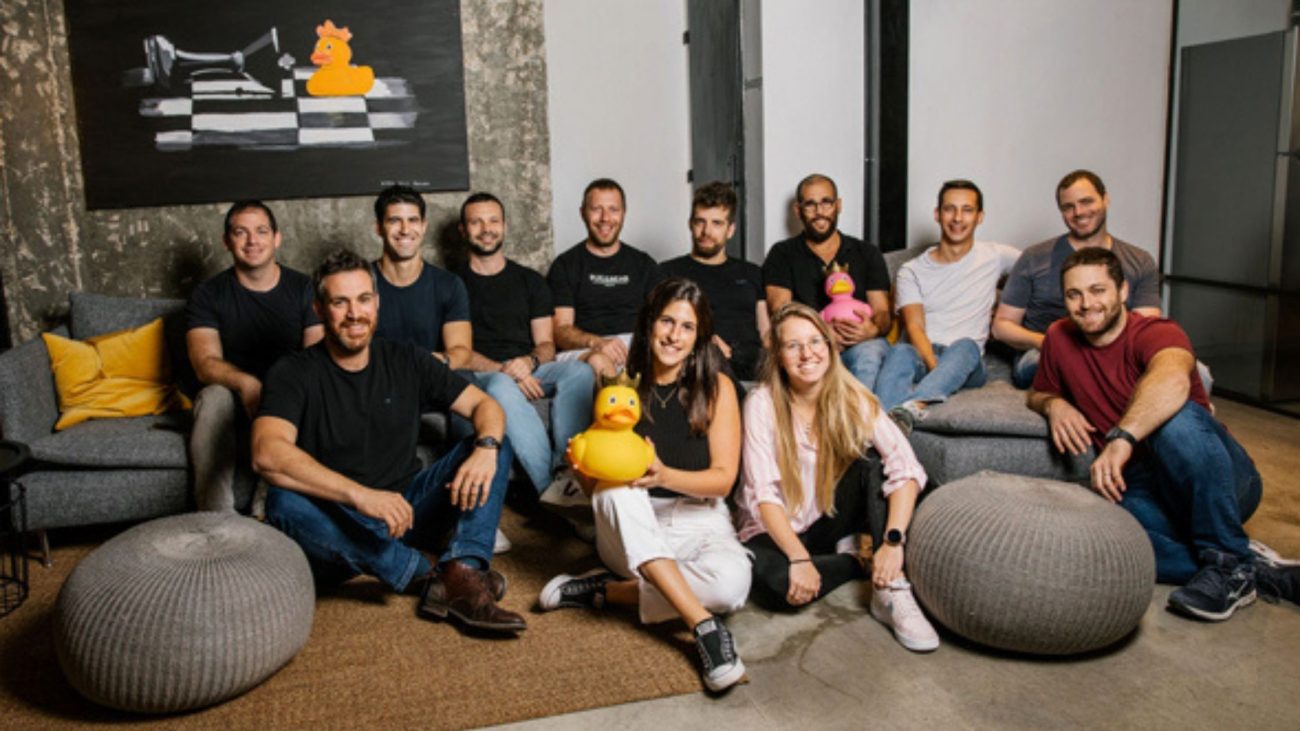What do tech companies like Pinterest, Uber, Intuit, etc., all have in common? They have ML-driven services within their product. In other words, they have their in-house machine learning engineering platforms, which the team uses to deploy models either in real-time or in stages/phases.
But, the same is not the case with most companies today. There is a lot of struggle that goes in without saying, particularly the deployment of ML models in production. Study shows that 90 per cent of machine learning models never make it to production.
“Machine learning in production can be done; it shouldn’t hurt so much,” said Alon Lev, co-founder and CEO of Qwak, throwing light on his platform.
When deploying ML models in production; the complicated part is not the technical part; it is more like this kind of ping pong between one team to another. “It takes a lot of time to convince someone else to do something for you. If they don’t understand, you will get back with no progress,” said Lev.
Lev said, with Qwak, they have managed to minimise the friction to almost zero. “You don’t need to send your models to anyone anymore,” he added.
Founded in 2021, Qwak was started by Lev, Ran Romano, Yuval Fernbach, and Lior Penso. The co-founders have previously led machine learning and data science innovations and worked across companies like Payoneer, AWS, ironSource, Wix.com, and others.
Backed by Leaders Fund, Amiti Ventures, StageOne Ventures and other angel investors, including Eugen Miropolski, Noam Kaiser, Tamir Carmi, Philippe Suchet, and Rani Wellingstein, the company has raised a total of USD 19.4 million.
With rapid digitisation happening across industries—close to 97.2 per cent of companies claim to have adopted data science and analytics in some form and shape—lately, there has been a growing interest among technopreneurs and investors. As per Deloitte, the MLOPs market is expected to touch USD 4 billion by 2025. Besides Qwak, some of the other MLOps players in the space include ZenML, Comet, Domino Data Lab, Weights and Biases, and others.
Deploying ML models in production, Qwak-ly
Simplifying the ML productisation experience for all is Qwak. The company has successfully commercialised its ML engineering platform, which automates MLOPs processes and allows companies to manage models in real-time.
With a single line of code, teams can now quickly onboard their models. Its platform is currently used by various companies, including JLL, NetApp, Yotpo, Guesty, Skyline AI and others.
The outcome: The companies that were deploying one to two models in months can now deploy close to tens of models in days.
JLL’s VP of Engineering Or Hiltch said that Qwak helped them focus on creating a business impact rather than spending valuable time on setting up infrastructure. He said that by using Qwak, they improved their execution time by 4.5x. “At JLL, our development is very time-sensitive,” he added.
Qwak supports and assists research and development leaders, data scientists, ML engineers, technical analysts, and product owners by providing a management and observability platform with a clear view for each model. The best part is that everyone gets to view the model from an infrastructure standpoint to the business outcome level, with complete metrics, performance, costs, and versions.
Lev said there is so much back and forth between data science and engineers when deploying ML models into production. So, what Qwak essentially does is data scientists can build their model and train the model on top of their platform. Once trained, you can then deploy the models with a click of a button, either batch streaming or real-time with multiple deployment strategies, say, A/B testing, shadow deployment, etc.
The platform comes with a data lake, which saves all the data that comes into the model for the prediction. It also has a feature store, which allows customers to support different data sources and data types to be used on the fly. “Our feature store is heavily connected with the platform, meaning you can always investigate from two directions; you can see from a features point of view, say, what kind of models are being used or consuming the features from; and what kind of features within the feature stores are needed to train and predict against this very specific model,” explained Romano, saying that all this can be done with no or zero code.
Another interesting feature that the co-founders personally also like is to set alerts – accuracy levels, action triggers, etc., for example, retaining ML models automatically. “This is super relevant; you cannot go every day, check all the models, and retain them. You need something more or less robust, where you can scale your models faster for a moving company,” shared Romano.
Here’s a quick overview of the Qwak platform and how it minimises the friction within the data science and ML engineering teams.
Qwak removes the data science and engineering friction from machine learning while allowing faster iterations, scalability, and customisable infrastructure. This includes building recommendation engines, NLP applications, computer vision, etc.
“All they need to do is add one line of code, enter login credentials, and run the build command. That’s it,” said Romano, sharing the cultural shift data scientists have to go through when using their platform.
Qwak stack
Throwing light on the team and tech stack, Romano said that the team consists of two major groups, the MLOps team and the DataOps team. At Qwak, the MLops team is responsible for building machine learning engineering, model deployments, infrastructure, analytics, and automation initiatives. The DataOps team, on the other hand, handles feature stores or the ETL for the ingestion of data, data pipeline, etc.
The DataOps team and feature store group currently use Spark, MLflow, Redis, and Iceberg technologies. The MLOps team uses more infrastructure related to Kubernetes, Python, etc., for building models. For the backend, they use Java services, Kafka, Amazon Athena, etc.
En route: India
Lev told AIM that they plan to double or triple the team every year. “We are definitely growing super fast,” he added. Currently, the team consists of close to 30+ employees, including data scientists, product developers, ML engineers and others.
Qwak recently opened its office in the US and soon plans to expand in Europe. “Our main focus for the next couple of months would be around the mid-size market. This includes unicorns, tech companies, and digital-first startups, etc.,” said Lev. In terms of long term vision, Lev said they want to be a go-to tool for production.
“We are excited to work with the Indian market,” said Lev, saying that they are already working with two partners from the Indian market, where they are running POC with them.
“It is amazing to see many super cool and advanced tech companies coming from India,” he added. Lev said that they see a lot of ML and data science initiatives in the Indian ecosystem, and they are looking forward to adding impact.
Lev said that Indians are very tech-savvy, infrastructure aware, and technically sound in machine learning and data science. “They tend to know what’s important and what’s not,” he added, saying they are having a nice time working with leading companies in India.


























